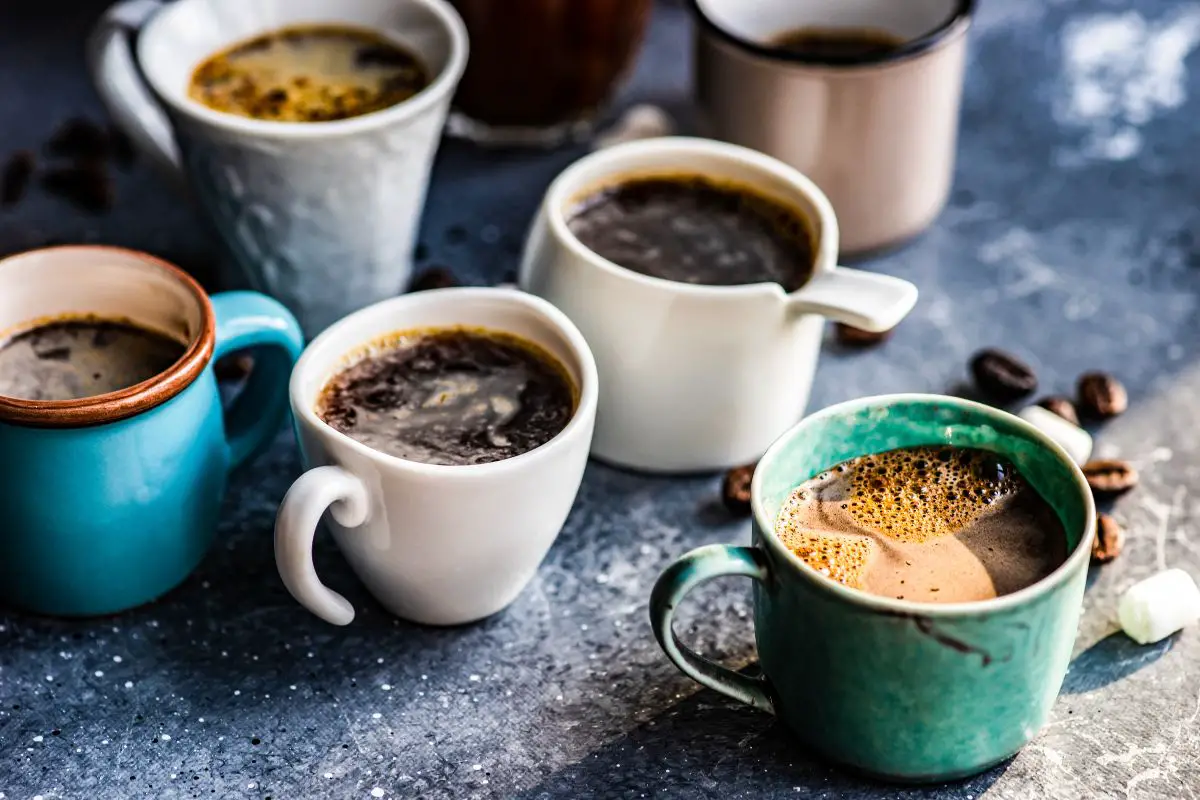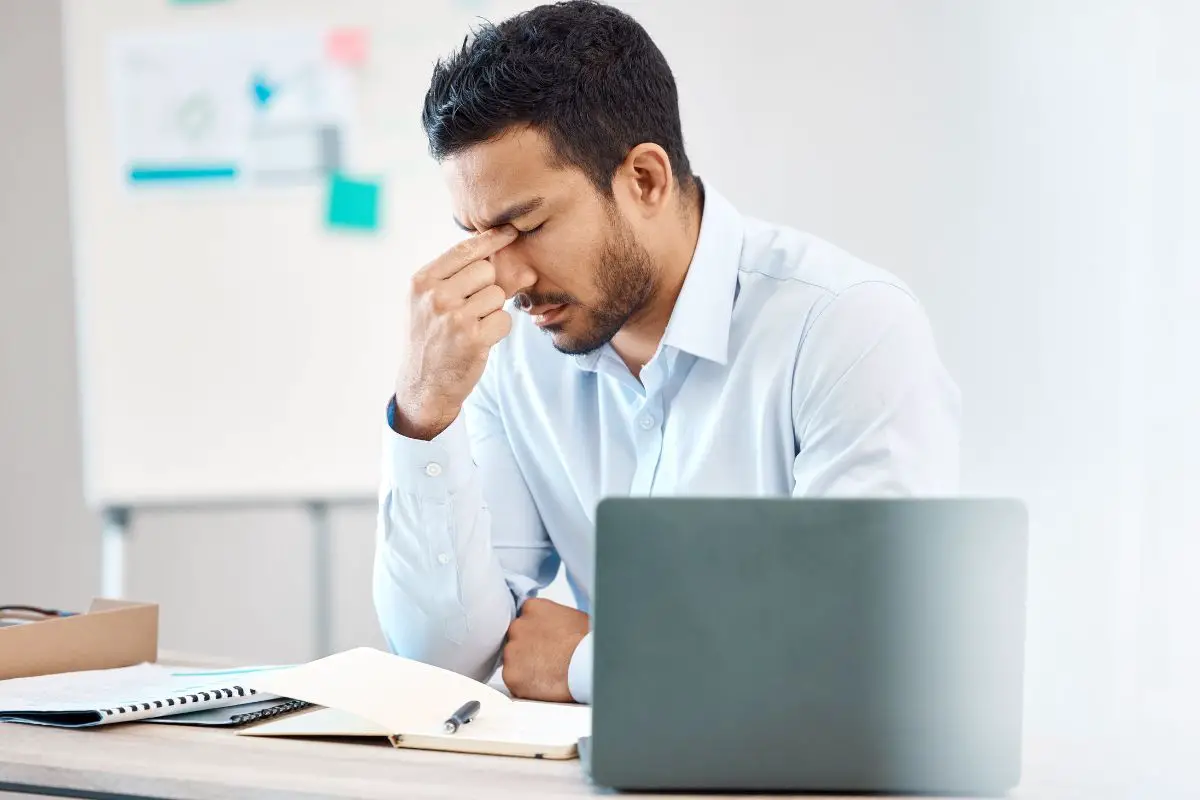Have you ever been curious about the history of coffee? I know it’s funny, but sometimes I wonder what happened to the man or woman that discovered coffee. How did they know that we can roast the coffee seeds, grind them and make drinks out of them? How did this person find this out?

It’s incredible, and I’m grateful for such a great invention, and since that time, we are still here enjoying coffee like it is some new sensation that has the potential of being a blockbuster.
But coffee is the blockbuster, it has been here for a while, and I bet it’s always going to be around because of its numerous benefits. We now have approximately 64 percent of adults taking this beverage since it was publicized and enjoyed in the 15th century.
Coffee is credited with many benefits that are important for us in our daily activities, but it also has its side effects. Some downsides that when you take too much coffee would develop in your body. One such downside is the jitters you get when you consume a lot of caffeine which is very abundant in coffee.
If you have watched The Flash – a DC comic on CW – you would think jitters is an excellent effect because a coffee shop in the series is named Jitters, and they serve the best coffee in the series. Well, jitter is a side effect of coffee that comes from having too much caffeine in your system. How then do jitters relate to anxiety, and does coffee tend to cause stress in people?
Coffee is not responsible for anxiety, but what happens is that it could aggravate the symptoms in people who are already prone to anxiety.
First, what is Anxiety, and what does it mean to be Anxious?

We won’t be jumping into the deep and start talking about how coffee causes anxiety or not. First, we would establish what anxiety. Anxiety is a feeling of being nervous, and in this post, we’d be discussing anxiety in two categories – the general anxiety of nervousness and anxiety disorder or Generalized Anxiety Disorder (GAD).
Anxiety generally (not the disorder) is an awareness that happens in your body in reaction to stress.
On the other hand, someone with GAD will often have prolonged anxiety for no reason and won’t be able to control themselves from feeling worried and stressed. A medical practitioner often diagnoses this condition.
Some of the symptoms of an anxious person include:
- They become nervous and restless
- Their heart rate increases
- They sweat a lot
- They breathe rapidly
- They often tremble
- They become fatigued and very weak
- They often lose concentration and can’t seem to stay focused
- They develop insomnia and start losing sleep
- They develop gastrointestinal issues.
Effects of Coffee
While drinking coffee has its perks, some other things happen when we take a lot of it. Caffeine is the highest substance that is in coffee. The most incredible thing about it is that it is responsible for most of the exciting perks that coffee boasts of. Still, in the same light, it is also responsible for most of the side effects of coffee, which occurs mainly when you’ve taken too many coffees. Caffeine is a psychoactive substance that acts as a stimulant on the central nervous system. Caffeine helps to keep us more alert after taking coffee, and this effect of caffeine is credited to how it blocks a molecule in our brain – adenosine – that tells our body to unwind and rest. When the caffeine blocks this molecule, it won’t perform its functions of telling the body to sleep, and then the body stays alert and continues to work.
This chemical process in the brain can lead to other things such as:
- Restlessness and Nervousness
- Faster Heartbeat
- Headache
- Excitement and Eagerness
- Trembling
- Frequent Urination
- Digestion Problems
- Irritability
This effect of caffeine can start as early as 40-50 minutes after taking coffee and could last as long as 4-6 hours. These side effects vary in different people and can seldom be dangerous, all of which depend on their caffeine and coffee tolerance, sensitivity, and the amount of coffee their body is used to. Genetics and body mass also contribute to how it varies in people. While taking coffee, it is recommended to stay away from other drugs that act as stimulants in your body because they could react together to aggravate the side effects. Reducing or removing coffee from your evening meal will also help curb some of these effects, like sleep deprivation.
The critical thing to do to avoid triggering the side effects of caffeine in your body is to make sure you don’t take too much coffee.
When Does Caffeine Become Too Much?
The Food and Drug Administration recommends that a total dose of 400 mg of caffeine is the ideal amount you should consume in a day. 400 mg caffeine would roughly be equal to 4 cups of coffee, so that is the amount you should drink in a day.
The ideal amount, however, for pregnant women should be half of that. If you consume too much caffeine, you put yourself at the risk of becoming nervous or developing tremors. If you have taken over 400 mg of caffeine, maybe by taking too much coffee, stop, then start taking a lot of water to hydrate yourself. Exercise or rather take walks. Walking or exercising helps to get rid of restlessness.
What Does Coffee have to do With Anxiety?
As we’ve established earlier, both Generalized Anxiety Disorder and the side effects of caffeine are a bit similar. Caffeine alone doesn’t cause anxiety, it is not capable of driving it, but it can aggravate the symptoms in people who are patients of this disorder.
To show the effects of coffee on patients with GAD, a study was conducted where GAD patients were given a 480 mg dose of caffeine, and the same amount was given to people who don’t have this disorder. This study revealed that over 60% of GAD patients reported panic attacks when they used the caffeine dose, while those who didn’t have this disorder didn’t write any case of a panic attack. Panic attack is one of the symptoms associated with Generalized Anxiety Disorder (GAD).
To further confirm the results of the study, a controlled group was created containing 38 GAD patients and the caffeine dosage reduce to 10 mg: this time, over 70% of the GAD patients reported that the effect of caffeine was similar to the ones they have with panic attacks. In contrast, the patients without GAD didn’t have any symptoms to report.
No matter how beneficial coffee is, people with GAD should abstain from drinking it because it could aggravate their symptoms and cause great harm.
Does Adding Sugar to Your Coffee Cause Anxiety?
Like coffee, additives can’t cause anxiety in anyone. Sometimes, we want to sweeten our coffee and turn to additives like sugar and milk, but these additives don’t affect what causes GAD. But in GAD patients, it could aggravate their symptoms.
Still Anxious About Coffee and Anxiety?
The best thing to do as a patient with GAD is to avoid coffee altogether. But for people who are GAD patients and those who are not, you can take decaf coffee or tea, which has way less caffeine than the usual coffee.
You don’t need to worry about stopping coffee at once, and you can gradually do this by reducing the number of coffee you drink.
Again, for GAD patients, you should avoid coffee altogether, but if you still want to enjoy it, then you can keep drinking, but keep the amount at the barest minimum.
This is all you need to know, but remember to ask your doctor what is specific for you and how best to utilize it.
Related Articles
Does Coffee Raise Blood Pressure?
Does Mixing Coffee and Cannabis Kill Your High?